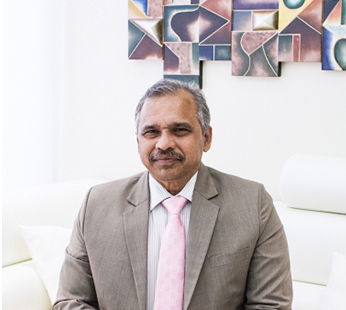
Dr. K.V. Dilipkumar

Chairman SMRITI

Former Professor (VPSV Ayurveda College, Kottakkal) & HOD Dept.of SWASTHA VRITTA

Former Professor of Ayurveda, teaching professor of the Institute of Oriental Medicine of The Peoples’ Friendship University of Russia, Moscow.

In Calicut University he held the post of the Dean, Faculty of Ayurveda and Chairman, Board of post graduate studies.

Vice-President of the Ayurveda Russian-Indian Association (ARIA).
Theories proposed to explain the disease causation varied from time to time. There was a time when the distribution of food products was not well organized which resulted in the extreme shortage of food; starvation and malnutrition followed. Green revolution was not even heard of. Result was the birth of nutritional theory, putting forth the role of malnutrition as the sole cause of diseases.
Later in the beginning of 20th century germ theory was projected as the major etiological factor of diseases. In due course of time, scientists took up environmental and host factors and proposed the theory of epidemiological triad. As time moved on, non-communicable diseases came to the lime light. By the end of 20th century, the above mentioned theories could not explain the causation of diseases, disabilities and death.
It was at this juncture, the paradigm shift occurred from the infectious communicable diseases to the chronic non communicable diseases. This situation demanded a better explanation that resulted in the introduction of the multifactorial theory of disease causation. May be scientists had to coin the word ‘life style diseases’, which if we look back is spreading a fear among the public as well as among the medical world. Thus, factors like diet, exercise, stress, habits, behavioural patterns, which were not even heard of or dreamt about, two decades back, are becoming the talk of every nook and corner of the universe. People started realizing and digesting, though slowly, the concept of mind-body dualism, which in fact, is successfully helping the understanding and management of various clinical conditions, thereby establishing the concept of psychosomatic treatment or medicines. Hence it is high time that we developed the therapeutic tool for the management of various psychosomatic ailments.
In the present era, pharmaceutical giants and insurance corporate have emerged as the two major pressure groups in the planning and execution of health related policies globally, and treatment often become the execution of a pre-programmed protocol. Medical management is a mere mechanical process under the control of capitalists. Unfortunately, in the current scenario, the over dosage of medication is raising threats like antibiotic resistance and incessant surveillance under pharmacovigilance pointed out many incidents of adverse drug reactions. It is proven that the body has its own self-healing mechanism and it is enough for the recovery of many disease conditions. This realization of our self-healing power and the trust in it may lead to take the necessary corrections in the diet, exercise and behavioural pattern modification which in turn will result in the reversal of pathogenesis.
The holistic approach emphasizing the mind body medicine is very well explained in Ayurveda. The first ever verse in Ashtanga Hrudaya, the classical Ayurveda text explains the concept of ragadiroga, i.e. the diseases originating from the desire towards the materialistic world. The harmony originating from the sustainable combination of the satva (mind), atma (soul) and sarira (physical body) leads to the healthy existence of an individual. The role of mind is more evident in the manifestation of psychosomatic diseases and the practice of satvavajayachikitsa (Ayurveda psychotherapy) is explained in the classical literature. Exploration of this theoretical background and introduction of advanced tools for Ayurveda psychotherapy is the need of the hour. Smriti meditation is such an innovative tool developed after rigorous review of literature and clinical studies conducted in various clinical conditions.
SMRITI (Smriti Meditation Research Institute for Therapeutic Innovations) is a broad platform to popularize the Ayurveda psychotherapy tools which has its academic, patient care and research wings.